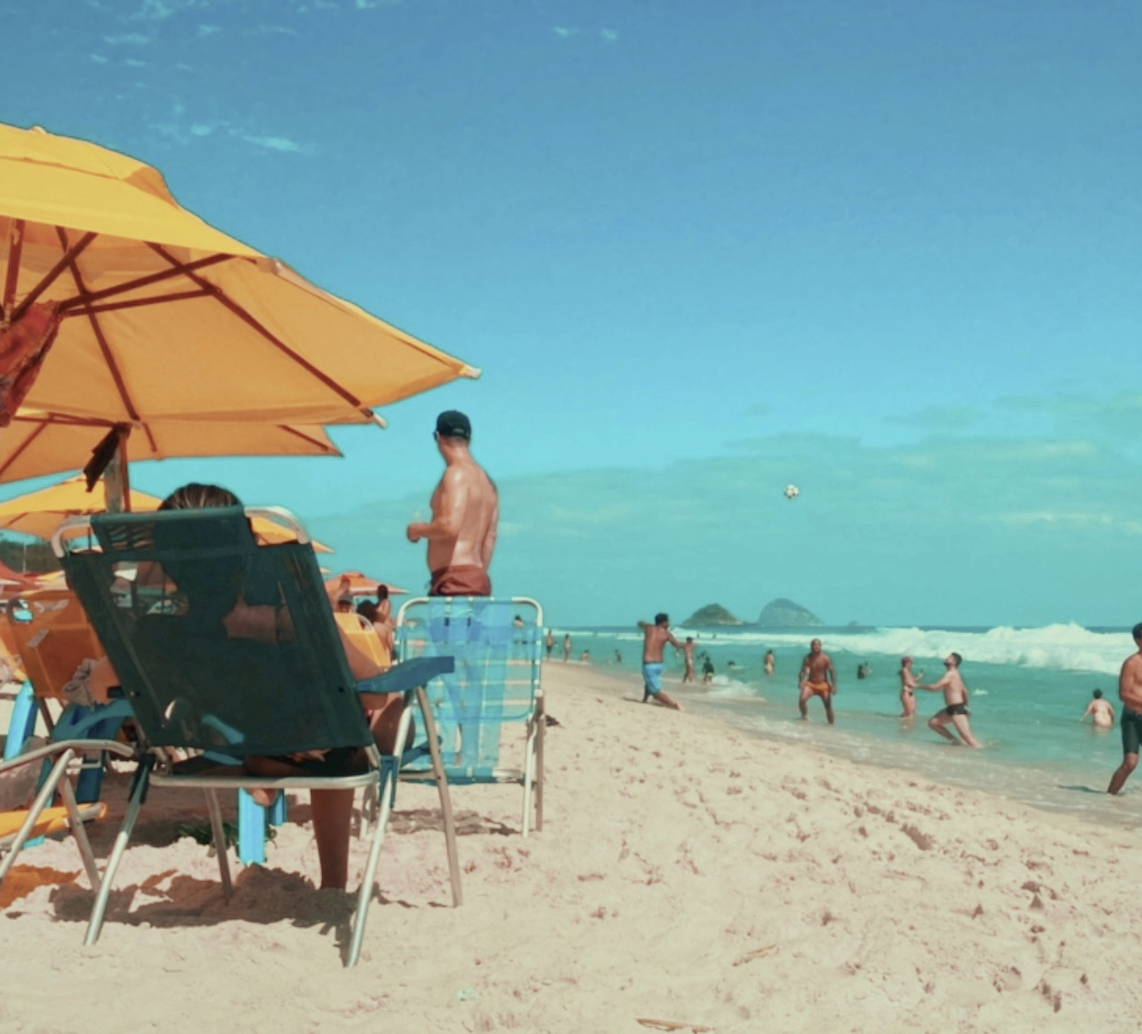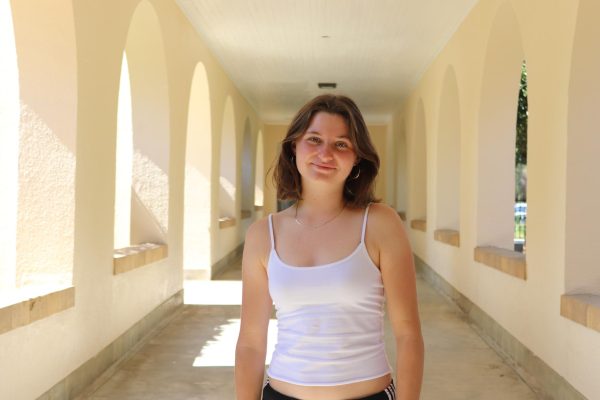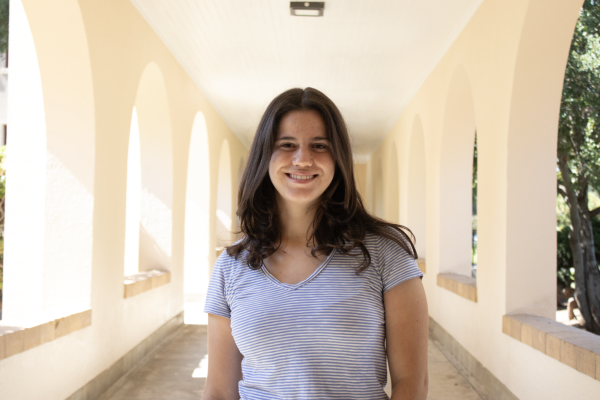Summer camp: The quintessential summer experience where kids ditch the hustle of the school year and explore their interests with creativity, freedom and a sense of adventure. Through new connections built and lasting memories formed, campers are able to come back to the real world with a fresh perspective.
Yardenne Sternheim, a junior at Palo Alto High School, has been attending Decathlon Sports Camp for nine years as both a camper and a counselor. This camp goes beyond the traditional sports of the decathlon, offering capture the flag, hockey, handball and more.
“Getting to play these sports …and just getting your energy out in the sun, [though] it’s hot and it’s tiring, but it’s so much fun,” Sternheim said. “And then I can’t forget to mention, every single day at the end of the day, you got a popsicle.”

As each camp differs from one another, so do their traditions. These customs can influence campers for years to come. At Decathlon, they celebrate a sense of legacy that pushes kids to come back every year. Unique traditions encourage campers to return to Decathlon year after year as a camper, until they eventually return as a counselor. “Decathlon has this camp tradition where, after you attend the camp for five years, you get inducted into the hall of fame,” Sterheim said. “Each year, you get a white camp T-shirt, but then after five years, you get a special camp T-shirt corresponding to what year you are. You also get a photo taken of you doing a sport of your choosing, and it’s added onto a board with all the other inductees.”
Sterheim continues to build up the legacy of all those who take part in Decathlon.
“I feel like that’s also a part of what keeps people coming back, like, you know, that want to be in the hall of fame,” Sterheim said. “Every year, my brother’s like, wait, how many years until I get inducted?”
As Sterheim made the transition from camper to counselor, she discovered the behind-the-scenes work that goes into running a camp. Sometimes things can look easier from the surface, and becoming a counselor comes with new responsibilities.
“As a counselor, you’re doing all the work, and you’re putting all these things together for the kids to enjoy,” Sternheim said. “You’re putting in the work, but it’s so incredibly rewarding, because then you get to see the campers super happy, and that’s how they want to spend their summer.”
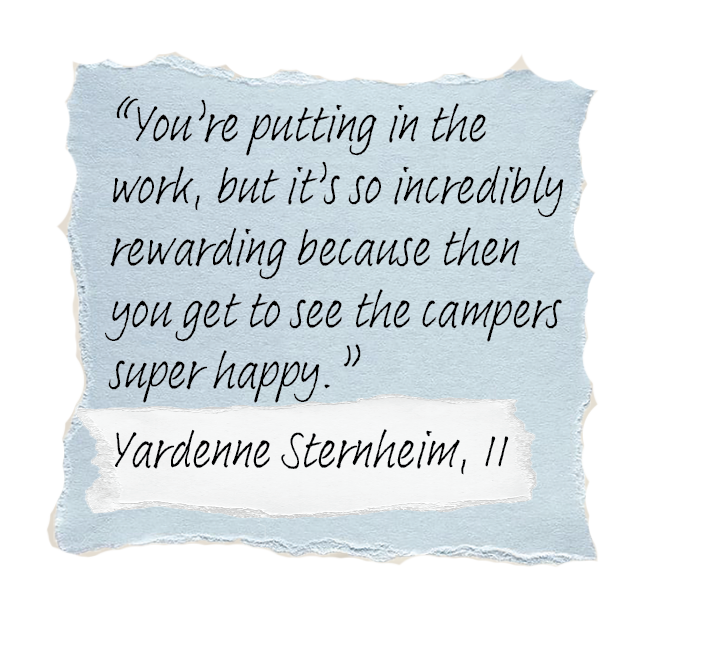
The vital role that counselors play in shaping a positive camp experience for campers is clear to Alessandrea Alonso, the former manager of Camp Rinconada and Camp Menlo.
“I wanted everyone to feel encouraged to step out of their comfort zone,” Alonso said. “Part of it is having someone the kids can look up to and connect with.”
For some kids, going to camp can be a big transition and a nerve-wracking experience — one that counselors often wind up helping campers with. As a leader, Alonso finds gratification in creating a camp that changes the negative notions that campers held beforehand.
“I think my favorite thing about camp was seeing the changes in shy kids,” Alonso said. “The kids that didn’t want to be there at first, the kids that cried and refused to leave their parents’ side. Those kids were usually the ones who ended up having a blast and making so many friends. Those were the kids who didn’t want to leave at the end of the day or wanted to come back for more weeks.”
Though camp can end up being a positive experience for many, it’s not easy for all campers who get off to a rocky start. Sternheim has gotten to work with and inspire some of the less eager campers throughout her time at Decathlon.
“He [the camper] just didn’t want to be at the camp, but his parents signed him up,” Sterheim said. “You could tell he was so unenthusiastic. And now, part of it makes sense, because it’s hot, it’s tiring; you’re outside in the sun all day.”
Despite the challenges, Sterheim learned that most of the time it is up to the counselor to reframe the campers’ mindset.
“Dealing with that camper was hard, but it taught me a lot on how to deal with these situations, and also kept me persevering,” Sternheim said. “Even though there’s an obstacle, you can always move forward. The kid, a lot of times, struggles to do that, so it’s up to the counselor and the person in charge to feed the enthusiasm into the campers and the group, no matter how tired the counselor is.”
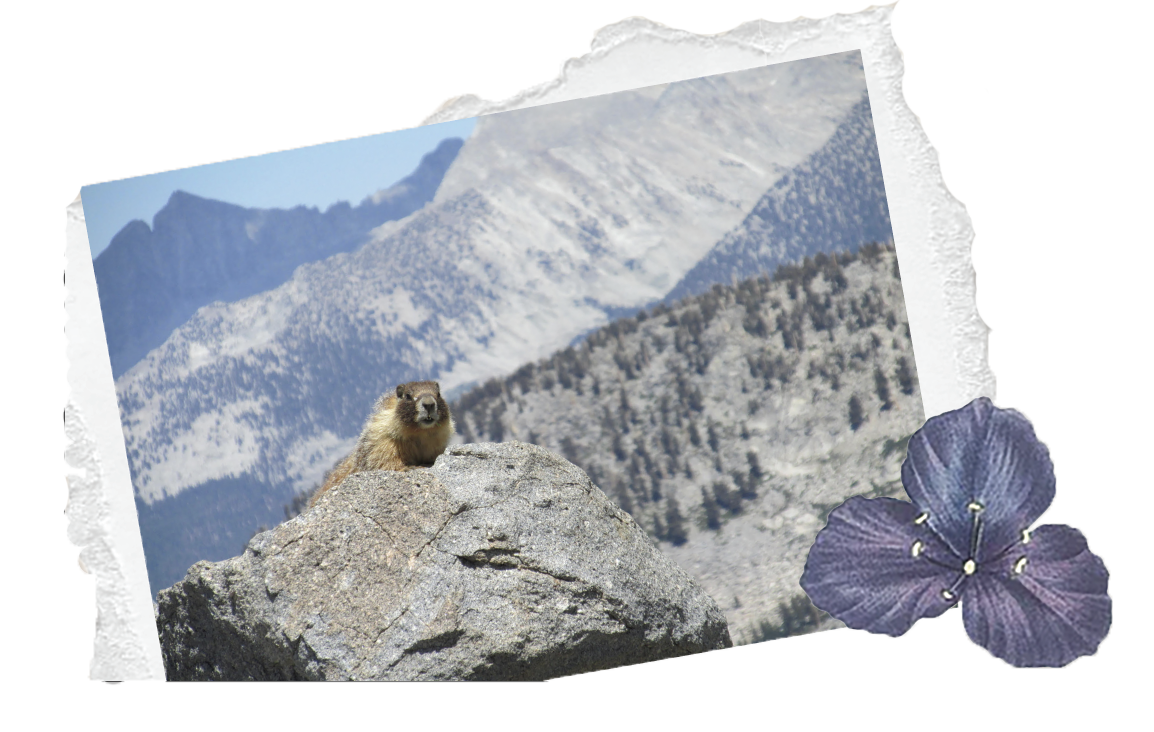
Counselors like Sternheim ensure that campers gain more than just athletic skills: Attendees’ attitudes can change as well.
“Summer camp can make kids confident,” Alonso said. “Their confidence manifests in different ways; some gain social confidence. We have got a lot of younger kids who had never attended school before [camp], but would when summer ends. For some of those kids, this camp is their introduction to social settings. Even with kids who are only with us for a week, we see them blossom [from] Monday to Friday. They have new friends, and they walk into camp surer of themselves every day.”
Lasting friendships are one of the best parts of camp for junior Zoe Sherer. Sherer has been attending Stanford Sierra Camp, a family camp at Fallen Leaf Lake in the Sierra Nevada, since she was a baby. Families attend the same week of summer year after year. This unique camp structure has created a whole community of families that will reconnect each summer.
“It’s a really nice place for meeting new families that you connect with, because it’s all Stanford alumni families,” Sherer said. “It’s crazy [the families] you meet there, that you actually [already] know from someone or another. And it’s nice to get to know them for a week, because you’re hanging out with them all the time.”
Sophomore Kate Lindstrom has gone to Bar 717, a sleepaway camp nestled in the Trinity Alps of Northern California, for two years. During her time at the camp, Lindstrom experienced the transformative experience that a summer camp offers.
“I gained so much confidence, and I really came into myself,” Lindstrom said. “Every time I returned from camp, I would just be so happy, and I would feel so much better in general.”
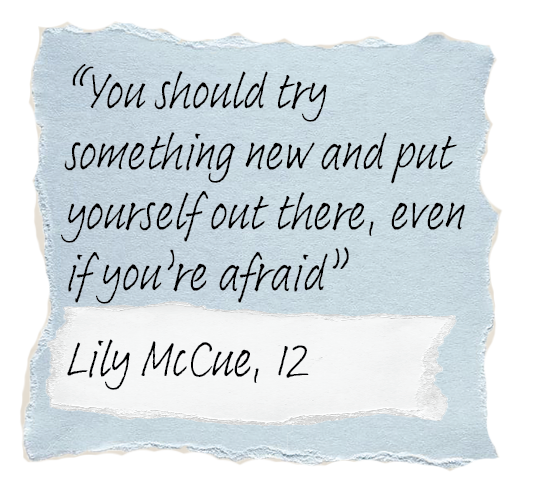
For Lindstrom, the camp environment, which puts less emphasis on outside appearance, helped contribute to that positive growth.
“It is important to send kids to summer camp and get them a little bit of time where, like at Bar 717, the only mirror there was a small one, maybe the size of my palm,” Lindstrom said. “It really helps kids find their confidence and find their own voice.”
Resilience built from overcoming struggles fills campers with confidence. Experiences where kids reach out of their comfort zones are some of the most valuable moments. Senior Lily McCue has attended French Woods, a sleepaway camp in Hancock, New York, for two years. One hurdle in the camp experience was learning to cope with homesickness.
“The camp [French Woods] was two weeks long, so there were a lot of people who were homesick too,” McCue said. “I hadn’t been away from home; that was the first sleepaway camp I’ve ever done. Doing it in New York for two weeks was challenging at first, because I missed my family.”
While away from her family and her home, McCue noticed changes in her and her peers.
“I think they [other campers] gained some maturity and independence, because your [their] parents aren’t there telling you [them] what to do or how to act,” McCue said.
Surrounded by new people, McCue gained social skills from interacting with campers, making close friendships during her time at French Woods.
“You’re thrown into a place with a bunch of random new people,” said McCue. “It’s helpful for building your ability to reach out to people and make friends. Everyone at summer camp is super friendly, and you learn how to interact with people in a whole new way.”
Amid new people and unease about the outcome of different activities, some campers bump into trouble when attempting to get out of their comfort zones.
“You should try something new and put yourself out there, even if you’re afraid,” McCue said. “It might be something you really enjoy. Challenge yourself, try activities that are out of your comfort zone.”
Sometimes putting yourself out there can be hard, but it is important to learn how to.
“Don’t wait for friends to come to you,” McCue said. “You should go and actively make friends yourself, because no one’s gonna judge you. Everyone’s in the same position; they’re all meeting new people, and it’ll be as fun as you make it.”
Aroundthecampire







